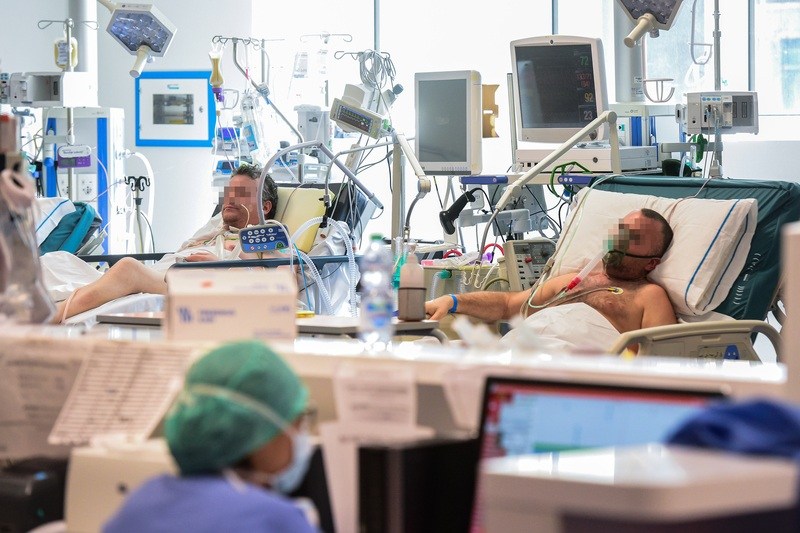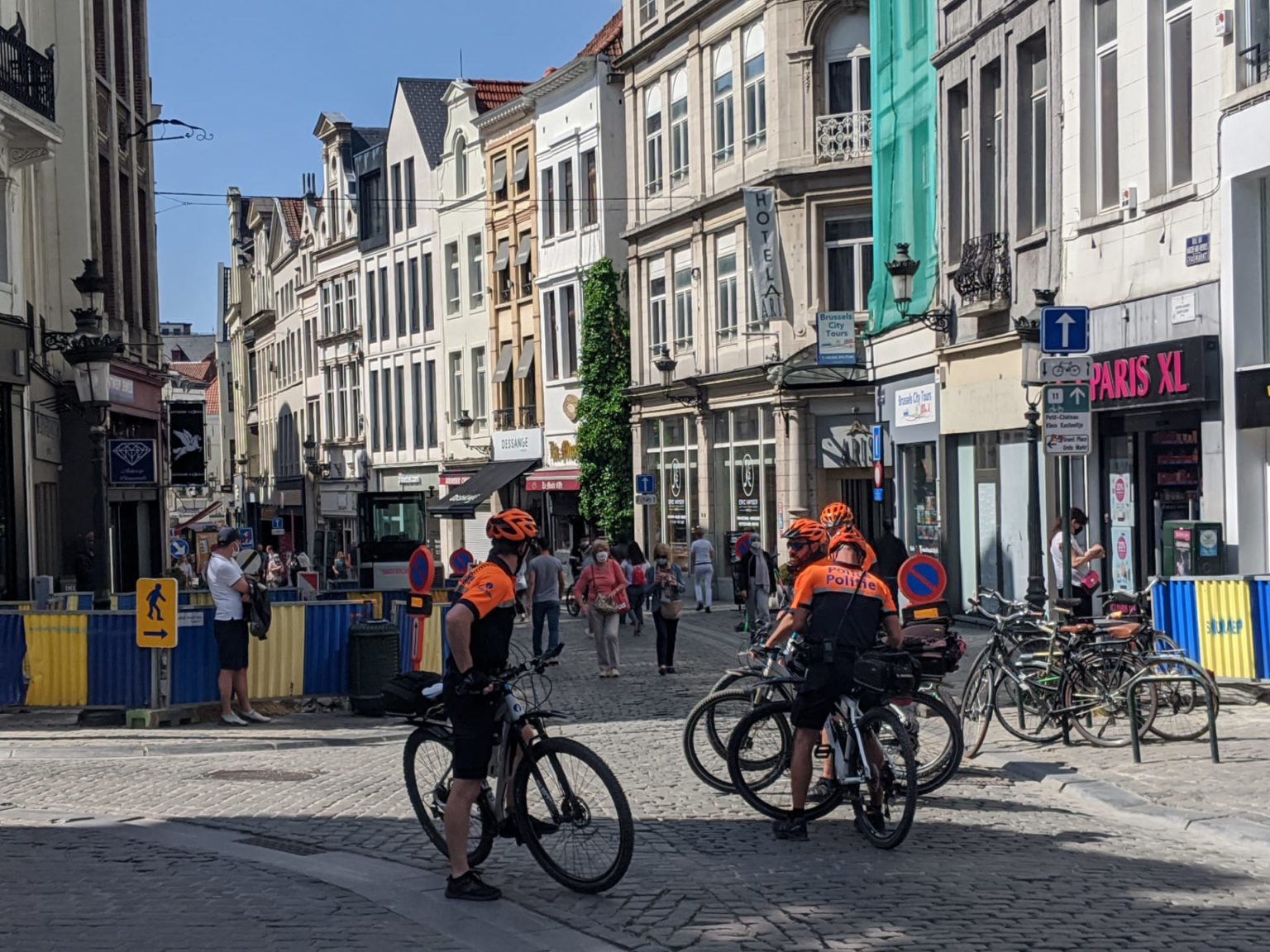Despite attempts to form a new government, Belgium has been governed by a caretaker government since the elections in May 2019. Acting Prime Minister Sophie Wilmès, a former budget minister and the first ever female Prime-Minister in Belgium, was appointed last October.
Suddenly she had to fight the coronavirus outbreak and manage the country during its worst health and economic crisis in modern times. In March, she was given support by most political parties and granted special powers by the Parliament to navigate the country through the crisis.
Since then, she has been in the limelight, chairing government and expert meetings and ensuring the public that Belgium will overcome the crisis if everyone complies with the lockdown restrictions and social distancing measures.
In this interview with The Brussels Times, the Prime Minister looks back at the management of the coronavirus crisis in Belgium and discusses other topical issues.
Q: Most EU countries were not prepared for the outbreak of the coronavirus and decided too late on border controls and travel restrictions. Should the European Commission and its disease control centre have acted earlier to alert the member states to the danger and coordinated a common approach on containing the spread of the virus?
A: All around the world, countries had been caught unawares by a disease which we knew nothing about. To be honest, the knowledges regarding COVID-19 are still incomplete today. It’s always easier to rewrite history afterward so I’m not going to point fingers at institutions or others countries. I truly believe that everybody tried their best to fight the epidemy. Measures should not be necessarily the same in each country because realities on the field are sometimes very different.
Q: In its recovery plan for the EU, the European Commission has proposed a new EU4Health programme in the framework of the current competencies of the member states. (At the European Council in July, the member states decided to reduce the funding.) Is there a need for treaty change to give the EU more power to respond to pandemics and coordinate actions by member states?
A: When the time comes, we’ll have to draw the right conclusions from the COVID-19 crisis. Even on a European level. I think that question could be raised at that moment.

Italian hospitals were overwhelmed when the first wave struck at the beginning of March. © Belga
Q: Your predecessor and now European Council president Charles Michel has said in a message to the opening of a national consultation in Italy that its sacrifice probably indirectly saved lives in the rest of Europe because Italy was the first country in Europe to be hit by the corona virus. Do you agree?
A: Italy was the first European country to be hardly affected by the virus. That was a tragedy. We cannot deny that we surely benefited from the Italian experience in managing the epidemy even if the virus was quite a mystery at that time. However, each country had to adapt itself regarding its own reality.
Q: During the lockdown in Belgium, at least in the beginning, there was a lack of protective equipment, not enough tests and hardly any contact tracing. Retirement homes were largely unprotected. The police force was enforcing the measures but were seldom seen wearing face masks. Retroactively, what could have been done differently by the federal government, given the division of powers in Belgium?

Police trying to enforce measures during the de-confinement phase in Brussels. Credit: Jules Johnston The Brussels Times
A: Let’s not forget that we are managing an unprecedented situation in a context where the world was on fire so to speak. Shortages were numerous worldwide and, at the same time, we were asked to build new systems and new procedures from scratches. I would for example refer to the contact tracing system.
Of course, we could have been done things differently, knowing what we know today. And it appears clearly that fragmentation of power in Belgium did not make things easier. But it’s not the time for conclusions quiet yet. The virus is still here and the health crisis is not over.
Q: Many countries underfinanced their health care systems before the crisis and today there are demands to fill the gaps.
When The Brussels Times interviewed you in 2017, when you were federal budget minister, we spoke about the need of effective budget coordination between the different levels in Belgium. “The health budget used to increase automatically by 3% each year. Thanks to cost-effectiveness measures, the health budget will continue to increase (this year by €583 million) but not as much as before.”
Do you foresee any significant increases to the health budget as a result of the crisis?
A: Belgium has an excellent healthcare system. One of the best in the EU according to foreign studies. We also maintain a healthcare budget that is higher than the EU average. And I just want to say that, behind the numbers, the people who work in this field show an incredible dedication and sense of duty daily. We could be grateful to them.
However, nothing is perfect. And the crisis shows us the flaws of our healthcare system. I’m sure that the next federal government will have to bring reforms for a better system, a system better prepared to respond to this kind of crisis. More money is not the only solution. Let’s be clear: I’m not saying that it should not be on the table. But it´s a mistake to think that injecting more funding will resolve the problems by itself. Actually, it´s an easy way out. We need to analyse correctly the situation and the real needs of each part of the system instead.
Q: The expert group on the exit strategy (GEES) said in one of its reports to the National Security Council that there were a number of issues where they felt they had been ignored (“code red”) or at least partially ignored (“code orange”). When is it justified to allow political or economic considerations to take over when health issues are at stake? Were you sometimes obliged to choose between conflicting views and recommendation from the experts?
A: We could not have managed the crisis without the help of the experts. Their role is to guide us in these difficult times. I don’t think that the experts involved in the discussions felt like they were ignored, quite the contrary. In fact, the colour code represented the aspects that should be improved to secure the exit strategy. It’s a daily job and we are doing it, in concertation with the Belgian regions and communities.
Our role, as politicians, is to make the decisions and find the right balance between all considerations. Health was, and stay, our prime concern. But we could not turn a blind eye indefinitely to our social life or our economy, for example. In general, divergences between experts and political decision-makers were minor.

Black Lives Matter protest in Brussels early June. © Belga
Q: Following the police killing of George Floyd in the US, the attention has also been drawn to alleged brutality and racism in the Belgian police force. Some incidents during the crisis and in recent arrests in demonstrations in Brussels have aroused debate. The police management has largely rejected the criticism. Should the government establish an independent committee of inquiry?
A: This committee exists for 30 years now. It’s the “Permanent Oversight Committee on the Police Services”, Comité P for short, whose members are appointed by the Parliament. I don’t hear many voices considering failures in the way that the committee works. Besides this external committee, don’t forget that there are internal procedures too. That said, I would not make risky comparisons between what is happening in the US and the situation in Belgium, though there is always room for improvement.
Q: Police recruitment is a member state competence and there are no figures on EU level. Should the composition of the police force reflect the diversity of the population? Is it time to merge the different police zones in the Brussels region to one police district? And should the decision as to whether allow demonstrations during a still on-going crisis lie in the hands of the mayors?
A: Of course, the police force has to reflect the diversity of the population. And we cannot say that there is no diversity among our police forces. Could we do better? Certainly. The works should continue.
Regarding the demonstrations, the National Security Council (CNS) issued clear rules to allow those events during the COVID-19 crisis. But the mayors stay fully competent to assess the situation in their localities. It is important to trust the authorities that are closer to the field.
Q: Another hot issue right now is Belgium’s colonial legacy and more specifically what to do with all statues of King Leopold II and the streets and squares named after him. Should be statues be removed (to museums) or should they remain where they are but with signs explaining the colonial context?
A: The Parliament has addressed the issue and establish a commission on this topic. I’m not going to prejudge the debate before it starts. But it’s time for Belgium to look into its common past with the Democratic Republic of the Congo, with clarity and discernment and without taboos. This also applies to Rwanda and Burundi.
Q: Last but not the least: Would you consider it as a kind of baptism of fire to become the country’s first female permanent prime minister at such a troubled time as this not only in Belgium but across the world? Has the crisis prepared you to lead Belgium in the post-crisis period with all its economic and social challenges?
A: I´m so focused on managing the crisis that I might not be fully aware of the journey we had so far. My career has never been a point of attention during this period. People’s health was and remains the top priority. I have no idea where I will be when the next government steps in but I´m sure of one thing: I don’t want to cling to any function, that is not who I am. Nevertheless, I´ll always be available for my country, for the Belgians.
M. Apelblat
The Brussels Times

